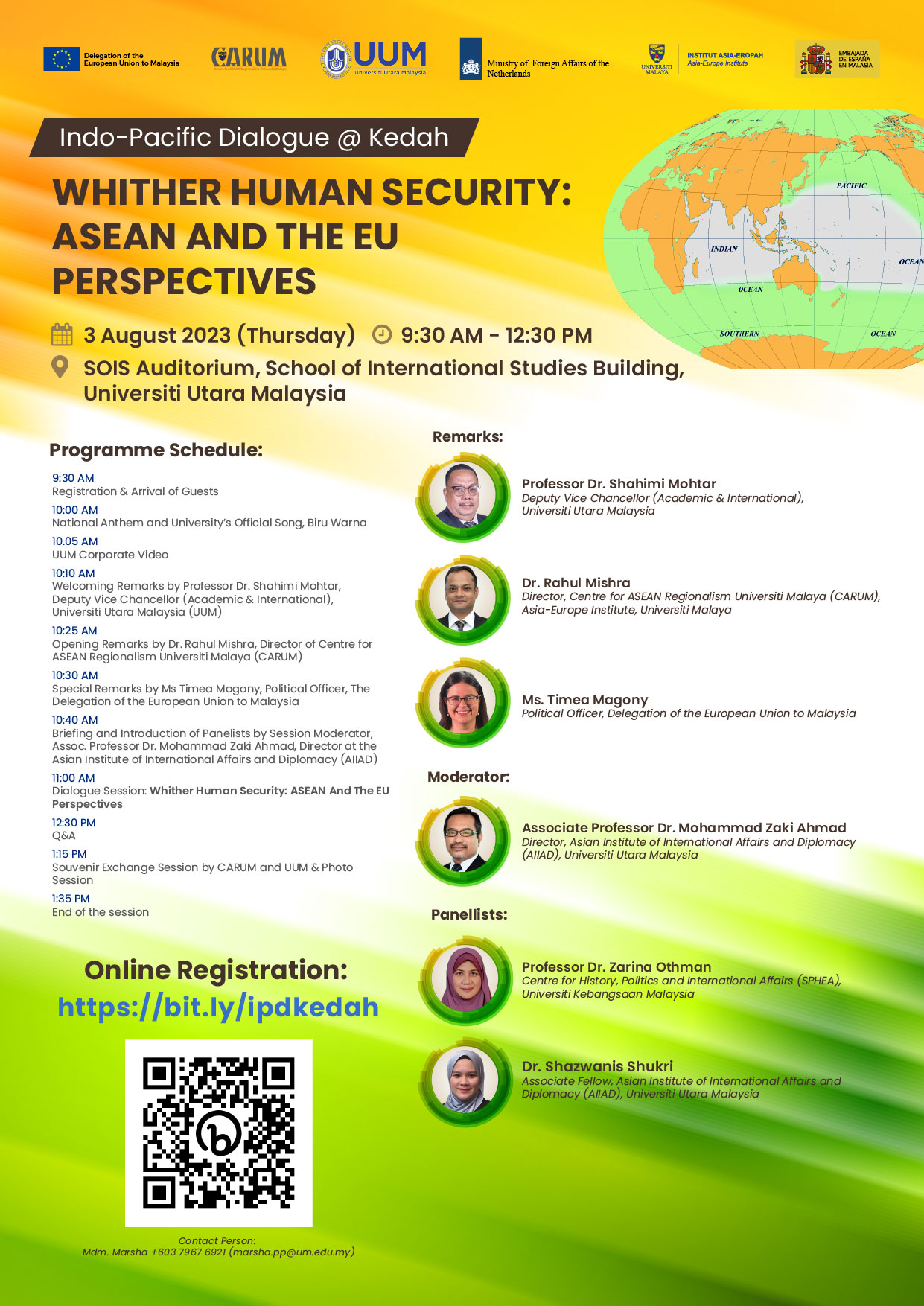
In recent years, the concept of Human Security has garnered significant attention in the Western world as a vital guide to steer nations and their populace away from uncontrollable calamities. However, this crucial concept remains marginalized in the Indo-Pacific region, revealing a significant divergence that underscores the need for further dialogue, discussion, and potential inter-regional cooperation.
The European Union (EU), a pioneer in this field, acknowledged the value of Human Security nearly two decades ago. This approach seeks to understand and resolve security issues at the grassroot level, focusing on individuals and groups. The EU contends that instability and terrorism can result from the failure to ensure Human Security within any given state, potentially threatening the security of the European region. As early as 2003, the EU implemented the European Security Strategy (ESS), establishing a Human Security doctrine and asserting the EU's responsibility to contribute to global security as a prosperous and capable region. Therefore, the EU's focus on Human Security serves to secure the global environment and bolster the global order.
The concept of Human Security extends beyond the ESS. It's also emphasized in the EU's most recent Indo-Pacific strategy. Unquestionably, the subject fits perfectly into this strategy. Firstly, the varying perspectives on Human Security among Indo-Pacific nations result in a rich disparity in human development, leading to more conflicts and security issues. These conflicts can negatively impact both the region and the EU, the region's largest investor. Integrating Human Security into the EU's Indo-Pacific strategy can raise regional awareness, alleviate regional tension, and facilitate the EU's objective of preserving global stability. Secondly, focusing on Human Security may foster opportunities for the EU to collaborate with Indo-Pacific countries beyond mere development aid and trade, potentially creating more equitable, tighter partnerships and enhancing the EU's engagement in the region.
To date, the EU has made significant strides in this regard. For instance, as early as 2018, the EU provided over 10 million in financial support for Southeast Asian nations battling the potential devastating effects of monsoon season. Moreover, during
the COVID-19 pandemic, the EU actively participated in the first EU-ASEAN COVID-19 Vaccine expert dialogue and contributed over 2.2 billion Euro to the COVID-19 Vaccine Global Access (COVAX) Fund. These efforts underscore the EU's commitment to human security development within the Indo-Pacific region and across the globe.
Nevertheless, it's apparent that, historically, the EU has led the cooperation on Human Security, primarily offering financial support to the Indo-Pacific region. While this approach addresses immediate needs, it lacks sustainability. Consequently, the EU is shifting its strategy from financial to technical support, prioritizing cooperation in the field of human security. This strategy involves supporting healthcare system development, pandemic preparedness, and bolstering disaster risk reduction efforts in the region. As the adage goes, teaching someone to fish is more sustainable than providing the fish. This strategic shift exemplifies the EU's commitment to enhance human security in the region, construct equal partnerships, and support long-term sustainable regional development.
From the Association of Southeast Asian Nations (ASEAN) standpoint, Human Security hasn't traditionally been a priority. The 2004 Indian Ocean tsunami, however, served as a stark reminder of how national stability is intrinsically tied to Human Security. Despite recognizing its importance and making numerous efforts to mainstream Human Security, ASEAN's outcomes have been minimal. The continued exclusion of Human Security from the ASEAN outlook on the Indo-Pacific further demonstrates ASEAN's seeming disregard for this crucial concept.
As an ASEAN member actively promoting attention to non-traditional security, Malaysia has made numerous attempts to pursue Human Security at the governmental level, albeit with limited success. Despite these efforts, the Malaysian Government hasn't yet fully embraced a Human Security approach in its domestic or foreign policy, maintaining that national security forms the basis of Human Security and shouldn't be replaced by it. This stance aligns with ASEAN's overall view. However, Human security is not designed to undermine national security. The stagnation in this field highlights the need for ASEAN and Malaysia to correctly understand, discuss, and debate Human Security thoroughly.
o address these issues, this dialogue at Kedah aims to provide a platform for scholars, experts, and the public from the EU, ASEAN, and Malaysia to share their insights on Human Security. This exchange of ideas will stimulate meaningful discussions and debates, creating new opportunities for cooperation among the EU, ASEAN, and Malaysia within the Indo-Pacific region. And we firmly believe that this collaborative effort will pave the way for the Indo-pacific region to develop as a community founded on human needs, peace, and security.